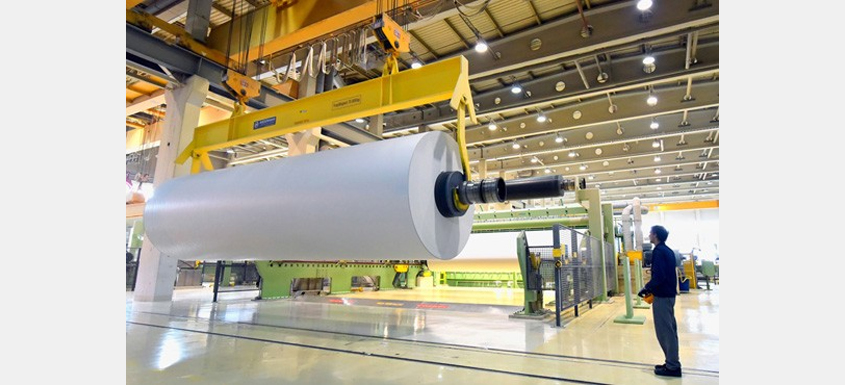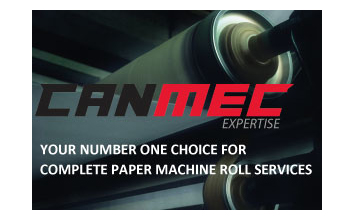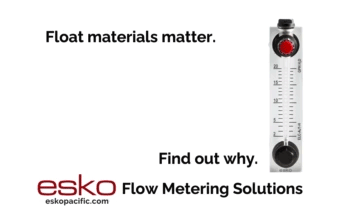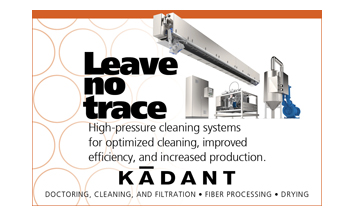Sam was recently promoted to maintenance manager from assistant maintenance manager now with a long time maintenance employee/union official/supervisor appointed assistant.as back up.
Sam was still ‘green’, meaning he had a lot to learn, but was an eager, sometimes reckless decision maker, thus the seasoned back up.
Paper Machine 9 was a vintage, well built, durable machine producing heavy weight offset, ledgers, book cover paper using a steam turbine as its main drive, distributed through a series of pulleys, belts and jackshafts to the various sections of the machine.
The optimum running speed for the lightest weight sheet was achievable by speeding the turbine past its critical speed, which of course, created a lot of vibration and consternation among employees and supervisors alike, so doing so was generally avoided and consequently the slower speed produced less product thus avoiding more revenue and everybody knew it.
Sam, during one of his thinking episodes, imagined changing the speed range of the machine, so the turbine’s ‘critical’ speed was higher than the highest speed with which the lightest basis weight sheet could be made with assurance of quality.
His solution was changing the gears in the turbine-driven gearbox.
Sam calculated the diameters and number of teeth in each gear in the reduction unit that would achieve this new critical speed upgrade. The gears were order, after the capital request for funding was approved through that corporate-wide process.
The mill manager whose background within the company had been on the engineering side of the business and who had progressed up the career ladder to his present position, a progression which Sam fully endorsed believing the current occupant was deserving, was kept fully aware of the project.
A routine, machine clothing change shutdown was scheduled with the critical job being the replacement of the gears in the reduction unit on the drive turbine.
The installation went well, and the machine started up reaching the new running speed for the lightweight offset without incident, e.g., no shuddering of the machine because the turbine critical speed had not yet been attained.
The machine tender introduced stock to the wire, once the stock reached the suction boxes in dry zone the machine stalled, dumping stock jetting out of the headbox all over the fourdrinier and surrounding floor area.
Sam, who was in attendance on the wet end, watched and thought.
He soon realized he had made a very basic, fundamental mistake in his hurry to achieve greater production. He had neglected to consider horsepower requirement of a faster machine with the same load. Anyone who has driven a standard transmission auto understands this basic fact and he had always driven ‘stick’ transmissions.
There was only one solution. Stop the machine, as the operators were still trying to get the sheet across, call his boss, the mill manager, to let him know they would be undoing what they had spent all day working towards.
This involved finding a crew, on an overtime basis, capable of performing the replacement of the new gears with the original gears. The union contract had a process for determining the sequence of whom to ask and all this takes time.
Sam called his boss, who was attending an evening event attended by many of the company’s officials.
“Bill, Sam, I wanted to let you know that we started up but couldn’t get the sheet onto the wire without the turbine stalling out, so we are in the process of reinstalling the old gears, we should be back up running in about six hours.” Expecting a royal ‘you know what’ Sam waited for Bill’s response, hearing voices in the background.
“Sam, thanks for letting me know the situation. Did you learn anything?” It was obvious from the lack of background sound that he had moved to another room or outside.
“Yes, I did”, pausing, “measure twice before cutting.” Recalling a popular phrase among the mill’s carpenters.
“Good enough. See you in morning.” And the phone went dead.
Sam had a suspicion that Bill had already known the outcome, even before they had shutdown initially, he was after all an engineer and had specialized in power generation within the company’s corporate engineering resources. And he suspected there was yet more to come.
The next morning in the morning operations meeting Sam admitted to all those attending that despite his best intentions he had screwed up by not fully thinking through the process of speeding up a machine without increasing the horsepower of the driver. He confessed that the additional downtime was his responsibility, and he would, somehow, make amends for the loss.
One of Sam’s takeaways was that he was not properly conditioned to make a good project engineer who must constantly evaluate every conceivable outcome of an action. He was not wired for ‘analysis paralysis’, deciding at that moment to concentrate on maintenance activities and processes and improving their outcomes and leave the engineers to do their thing even if that was a dreadfully slow process.
It seems Bill had the same idea and used his considerable influence to keep Sam on the job even after a costly mistake. Under different circumstances, in that era, that one bad decision would have been a career ending event.
The lesson here is simple. You will make mistakes, it is inevitable, however, the key is to learn from each mistake and apply that knowledge going forward.
 About the Author
About the Author
John Yolton is Principal at FOG Group













